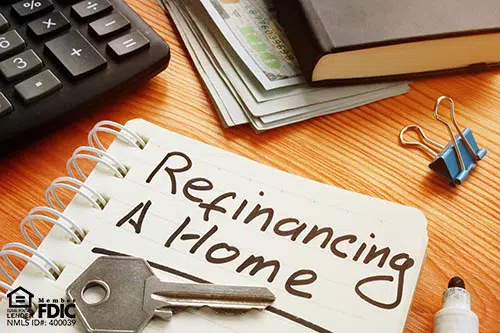As a homeowner, you may decide to refinance your mortgage at some point. Replacing your existing loan with a new home loan is considered refinancing a mortgage. A popular reason to refinance an existing mortgage loan is to reduce the interest rate and reap the savings that will occur through the lower interest rate.
In most cases, refinancing a mortgage loan should lower your interest rate by at least 1% or more. Before proceeding, use a refinance calculator to determine the potential savings.
Reasons to Consider Refinancing Your Home
There are many reasons for considering refinancing your home. The new loan could:
- Lower the interest rate, which thereby lowers your monthly payment.
- Shorten the term - your mortgage will be paid off faster.
- Convert an adjustable-rate mortgage to a fixed-rate mortgage. Or vice versa.
- Lower the interest rate and the term of the loan.
- Draw cash out of the home’s equity to use for other purposes. The term for this is a cash-out refinance.
Requirements for Refinancing Your Home
There are three key factors that lenders will consider when they are determining if they will approve your refinance mortgage application. These are:
- Your credit score—Your history of paying back debt and other factors make up your credit score. Lenders use this to determine how likely you are to repay your loan. The higher your credit score, the less risky you appear to a lender, and you may also benefit from a lower interest rate offer.
- Your income—Your income is a significant factor in your ability to pay back the new loan.
- Your home equity—The percentage of the home you own is your home equity value. If you take the value of your home and subtract the amount you owe on your existing mortgage, that will be your home equity. Lenders use this to determine how much they will allow you to borrow.
Lenders also review other financial factors to determine if you are eligible to refinance your mortgage. One important factor is your debt-to-income ratio. This calculation divides the sum of all your monthly debts by your gross (before tax) monthly income. Also known as your DTI, it weighs heavily on whether you will be approved for refinancing because it indicates your ability to repay the loan. It would be best if you tried to have a DTI that is less than 43%.
Your loan-to-value ratio (LTV) is another way to express your home equity and another factor that lenders will consider during your refinance request. This ratio compares how much you still owe on your home to its value. For example, if you have a $400,000 home that you owe $100,000 on, then your LTV would be 25%.
Your interest rate and the fees you will pay are also part of what your LTV determines. Most lenders also require that borrowers take out private mortgage insurance if they have less than 20% equity in their home. This will also be necessary if an LTV is more than 80%.
When you are ready to refinance your home, NASB is here to help. Call 888-661-1982 to get started.




